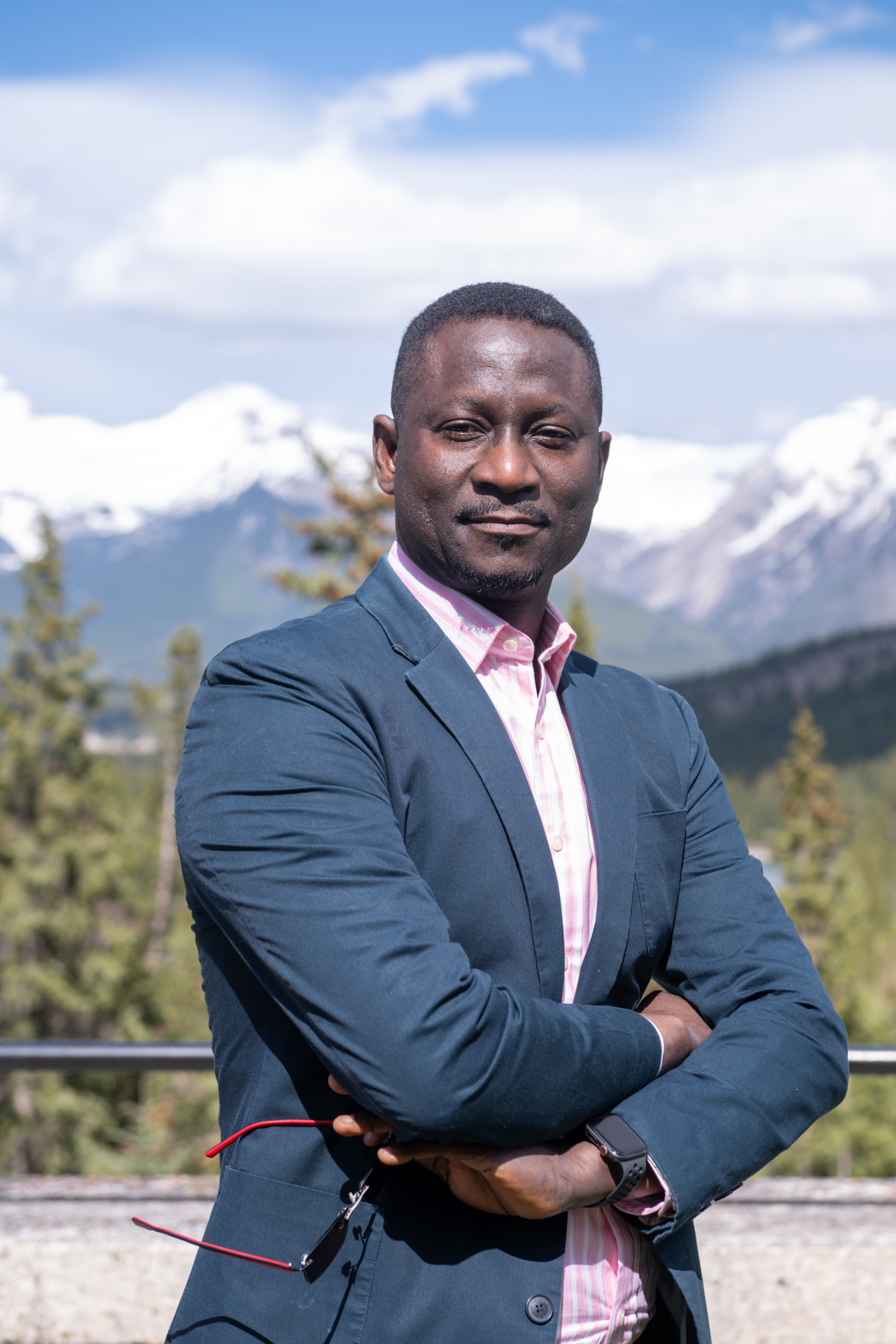Scholarship recipient works to improve refugees’ access to essential services
Scott Lingley - 7 August 2024
 As someone hailing from a tropical climate, Augustine Botwe says he was relatively well prepared to move to Edmonton to pursue graduate studies in January of 2022. The Ghana native’s years of working in program evaluation for UNICEF, as well as obtaining his master’s degree in social research and evaluation in the UK, had taken him to four of the world’s six continents and familiarized him with chillier temperatures.
As someone hailing from a tropical climate, Augustine Botwe says he was relatively well prepared to move to Edmonton to pursue graduate studies in January of 2022. The Ghana native’s years of working in program evaluation for UNICEF, as well as obtaining his master’s degree in social research and evaluation in the UK, had taken him to four of the world’s six continents and familiarized him with chillier temperatures.
“I remember my supervisor mentioned, it’s pretty cold here. I said no it’s fine, I’ve lived in Mongolia, which is also pretty cold, so I will survive,” Botwe says.
But, he admits, of all the places he’s lived, Canada has presented the biggest challenge for a newcomer integrating and accessing essential services, particularly healthcare.
“Even though I’ve travelled far and wide, this is the place where I struggled most in terms of the medical system. If I struggled, I could only imagine how a refugee coming to Canada must struggle,” Botwe says. “Canada is welcoming a lot of people but you arrive here and you are faced with so many challenges related to accessing services. Where do you go for services? How do you get your children into school, for example?”
His background in program evaluation and community-engaged research approaches, combined with his interest in using the tools of data science — data mining techniques, machine learning algorithms and analytics — to improve how systems work, led Botwe to focus his PhD research on the current healthcare model of how services are delivered to refugees and its impact on health outcomes for refugee children.
Under the supervision of education professor Dr. Cheryl Poth and Dr. Rebecca Gokiert, a professor in the School of Public Health, Botwe is conducting his research at Edmonton’s first community-based, principles-driven health centre, New Canadians Health Centre. The centre provides integrated culturally safe holistic services to refugees guided by its principles, grounded in social justice, equity and social inclusion. This is accomplished by improving and facilitating refugee access to healthcare and community resources to help them integrate into the community.
“I want to contribute to the literature about refugee healthcare by offering valuable insights into research practices in this field and to broaden our understanding of refugee healthcare challenges and opportunities for refugee children,” Botwe says.
“Most importantly, I want to contribute to the policy dialogue by providing evidence-based recommendations for better healthcare delivery in addressing the unique health needs of refugee children, which will require a paradigm shift in the healthcare system not just in Alberta but in Canada.”
As the recipient of a 2024 Izaak Walton Killam Memorial Scholarship, Botwe says he’s thankful for this financial support but, as with his doctoral research, his own experience has prompted him to think about the challenges faced by other people, namely those paying international student fees who don’t have access to the same kind of support. He says he’d like to see Canadian post-secondary institutions find a way to ease the financial burden for all international students.
Botwe also wants to express gratitude to his co-supervisors, his colleagues and professors in the Measurement Evaluation, and Data Science (MEDS) program, the Community-University Partnership, the Evaluation Capacity Network, his co-workers at Impact Action Lab at Alberta Innovates, and his family, especially his wife and children, for their support as he pursues his PhD.